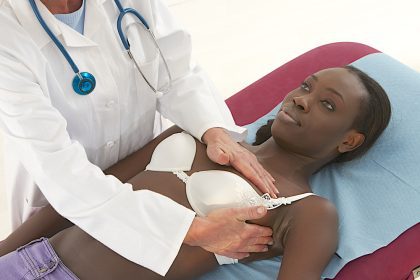
With over 30 years of experience as a board-certified OB/GYN physician, Dr. Kimberly Turner has dedicated her career to improving women’s health outcomes. After earning her medical degree from Duke University School of Medicine in 1990 and completing her residency at the University of Maryland in 1995, Dr. Turner has delivered more than 1,000 babies and provided care to over 5,000 women across Maryland. Now semi-retired from full-time practice, she serves as a consultant for the Morgan State University Maternal Health Research Coordinating Center, focusing on addressing building a culture of maternal health problem solving research among minority serving institutions. On a recent episode of Health IQ with Munson Steed, Dr. Turner shared her expertise on maternal health, preventative measures, and the importance of patient advocacy.
What made you want to answer the calling to become a doctor and your specialty?
It is a calling, I think that I started believing that I could do it even in the 3rd grade, at 8 years old. Science teacher told me I was capable, and I believed her. Fast forward from 8 years old to 22 years old when you graduate from school and matriculate into medical school, I really was drawn into the surgical subspecialties, but I couldn’t find any surgeons at my institution that looked like me, they weren’t women, they weren’t people of color. The only place where I sort of felt at home was in obgyn, because they are surgeons, they are women. Most of the physicians in that specialty were women, so I was much more comfortable, and it encompasses medicine and surgery and radiology and women’s health. It’s just a perfect fit for me.
How can we save lives today by just being good listeners?
It’s critically important for your physician to be a good listener, because I feel like that’s really the disconnect in so many of these cases. You hear again and again the families are advocating, the patients advocating, the mid level, and Doula healthcare providers are advocating, but no one is listening. I don’t have a complete answer, but the mortality and even the morbidity is at least 3 times higher in our race. We’re starting to think maybe some of that has to do with our burden of chronic disease. We’re carrying more, we’ve always carried more, and some of these microaggressions and things like that are actually affecting our health. So people should be listening, and in good health systems, even the majority physicians are getting some additional competency training. So I would advocate that you look for that type of provider.
How would you suggest we learn to be even better advocates for our health in general?
Well, I love the storytelling and sharing that we, as a community, have always done, and hopefully are continuing to do, sometimes even just hearing the stories, knowing in your family the stories of things that have occurred, I think, is a really important part of our self learning, and even how then we go on to advocate for our own health.
What would the title of your health commencement speech be?
Our Bodies, Ourselves. I think that as women, we go through so many changes, hormonal, physical, mental, emotional, and I think that most people really are kind of in tune to what happens to their bodies. So learning to hear that inner voice, whether it’s your physical voice, your spiritual voice, it really can help you to navigate the healthcare system.
What are some of the numbers that women ignore, that they should never ignore?
I think the first very important number is your blood pressure. It’s really important to have a normal blood pressure when you enter a pregnancy, and most of us African Americans in particular, are at risk for hypertension, just based on genetics. If you enter a pregnancy with hypertension, you are extremely likely to have a pregnancy related hypertensive episode, and these are things called Preeclampsia, Eclampsia, even strokes can happen. The second, I would say, is your body mass index. Again, many of us are entering pregnancy at an unhealthy weight, that’s the BMI. So it’s really important to do what you can to get that number somewhat closer to normal before you get pregnant, and the third is age. I think that with today’s technology, many, many women are getting pregnant at older ages, and again, the body does go through physiologic changes with aging that put women at risk. So if your numbers aren’t great, particularly your blood pressure, your body mass index, and you’re at an older age. Statistically, you’re going to be at a higher risk for a complication.
How important is that journey between trust and honesty with healthcare providers?
I think that’s one of the really beautiful things about a long term clinical career, like what I had, because, of course, the more you see people and interact with them, if that’s repetitive hopefully, the more you trust them and the stories will come out and they will continue to come back to you. I think again, there is something just about people that think that you have the same lived experiences as they do or know that you do that kind of keeps them coming back. One fun thing that I always did when I was a clinician, in the computer, you can put just a little thing to remind you of the patient, because you really honestly can’t remember hundreds of people every week, and just even coming back to that, like a little thing that they may have said they went on vacation in the past to Hawaii, and if they perceive that you remember, that you care, then they develop that trust very easily.
How important is exercise and movement for women, especially during pregnancy?
Exercise is really important, and with things like controlling your blood pressure and your weight. As we already alluded to or spoke about, those are numbers that you want to be in control, and when you exercise your blood vessels open up and if you know anything about a pregnancy, we have one big, huge blood vessel called the placenta. The blood needs to flow through there for the baby to grow, for the mother to have, there’s a maternal side and a fetal side, for the mother to have a healthy pregnancy. So exercise helps all of that. It helps to lower your blood sugar, which is another big number that we didn’t talk about, your risk for gestational diabetes as an African American. So exercise and movement helps all of that, and there are so many different places to get that exercise in. Even just walking around the block helps a lot. There’s prenatal classes at most of our local gyms, libraries, things like that. So there’s a plethora of places to go to help you to move if you’re not so moved.
What would you say to mothers who are working to cope with stress?
I think that this touches on mental health and being in tune to your mental health, because if they’re so overwhelmed with the things of life. Obviously people enter into pregnancy at different phases of their mental health, but if you are not moving, particularly if it’s related to stress, then you really need to have a provider that can get you the proper counseling and most of us have to move a little bit during work, during raising our children, but the type of movement that we were talking about before, the exercise type, is really beyond your everyday movement.
What are the red flags that new mothers should be aware of regarding their mood after giving birth?
One thing is that most new moms are sleep deprived because babies get up at all times of the night, so it’s normal to feel tired, but it’s not normal to feel overwhelmed, to have feelings of distress surrounding how you’re bonding with your baby, to have feelings of harming yourself or your baby. Those are big red flags for us, and hopefully you have at least somebody in your immediate circle that’s in tune to your mood as well as yourself. When you’re sleep deprived, a whole lot of different things come to light, and you may not recognize it quite as quickly in yourself. Also things like lack of enjoyment in any of your normal activities, not eating well, those are also some more subtle red flags.
What things are often not shared among mothers and daughters that should be discussed before pregnancy?
I think one big thing is the menstrual shaming, people don’t realize that it’s normal to have a menstrual period and cramping, and then the hygiene that goes along with it. I think that some mothers and daughters still don’t talk about that. I would see these teenage women that didn’t really understand what was happening to their bodies. The second, I think, is hormonal shifts. The hormonal shifts cause the menstruation. They cause the reproduction. They cause the menopause, and luckily we have people now, celebrities and advocacy groups, that are speaking out about these topics, and I think it’s, again, really helpful. I’ve been giving a lot of menopause talks, and there’s a lot of younger women in the room saying, ‘Hey, I didn’t know that, I’m only 30, but I’m so glad that I’m getting this information, so that I know what to prepare for in 20 years’.
What advice would you give to individuals considering careers in healthcare?
If you don’t have your health, you really have very little and if you’re born into this world and blessed to be healthy, I think that this inner feeling of service and wanting to help others, is really innate in some of us, and I think that these careers are pretty daunting. They take a long time to achieve, they’re very labor intensive. However, if I could have a retrospective scope. How much reward has been out there, just based on almost just me being there. As an African American woman it really was amazing to look back at retirement and hear some of the things that people said, really, just even your presence, and I did nothing other than show up. So if that’s important to you, I would say consider a career in healthcare, and that can look so many different ways. Technicians, nurses, mid level providers like midwives, Doulas, nurse practitioners, doesn’t have to always be a physician.














